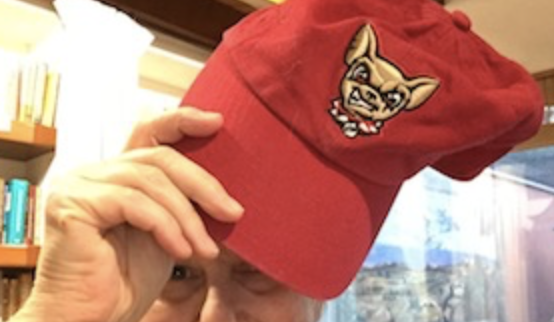

This fourth Monday of the odd-month, herewith, a bouquet of poets who have been so generous as to do a Q & A for this blog. My admiration, my thanks, and my hat off to all! May they inspire you to read more of their poetry— and perhaps also write some poems yourself.
Q & A with Karren Alenier on her New Book How We Hold On, the WordWorks, Paul Bowles & More (September 27, 2021)
“I have had numerous successful readings on Zoom… I like the platform and I have been making opportunities for other poets through Zoom. Yes, of course, there is a future in online readings. You get a bigger more geographically diverse audience. It’s exhilarating.”
— Karren Alenier
*
Q & A with Diana Anhalt on Her Poetry Collection Walking Backward (June 24, 2019)
“After Mauricio and I left Mexico and the home where we had lived for many years, I’d wake up in the middle of the night to go to the kitchen or the bathroom only to discover my feet walking in the direction they would have taken in my Mexican home, not here in Atlanta. The title’s suggestion of walking and residing in the past was what I was aiming for.”
— Diana Anhalt
*
Q & A with Barbara Crooker on the Magic of VCCA, Reading, and Some Glad Morning (December 23, 2019)
“If I’ve made the audience laugh in some places and cry in others, then I feel I’ve done a good job.”
—Barbara Crooker
*
Q & A with W. Nick Hill on Sleight Work and Mucho Más (March 25, 2019)
“I don’t know how it is for others who teach about literature, but for me, after a time, when you’ve dealt with so many accomplished, brilliant writers and poets, it wasn’t so much that I was influenced by anyone in particular. It was more that I admired specific characteristics, or that the history of genres of writing became clearer because of the way Vallejo, for instance, who did have a serious part to play in what I wanted to do with poetry, the way he broke down previous measures of value to challenge language itself served as a path. Similarly with parts of Neruda, whose Odes touched a thread with simple language anybody could understand, like that of the ancient Chinese in English though because their poems were formally complex and were sung.”
— W. Nick Hill
*
Q & A with Joseph Hutchison, Poet Laureate of Colorado, on The World As Is (April 22, 2019)
“I’ve always thought that the way poetry is taught often ruins it for young readers.”
—Joseph Hutchison
*
Q & A with Mary Mackey on The Jaguars That Prowl Our Dreams, on Bearing Witness, and Women Writers’ Archives (November 18, 2018)
“I think it’s the duty of a poet to bear witness to her times, and that’s what I have done for over 40 years: bear witness.”
— Mary Mackay
*
I welcome your courteous comments which, should you feel so moved, you can email to me here.

From the Archives: “The Essential Francisco Sosa or, Picadou’s Mexico City”
Poet, Writer, and Teacher Pat Schneider (1934-2020)

